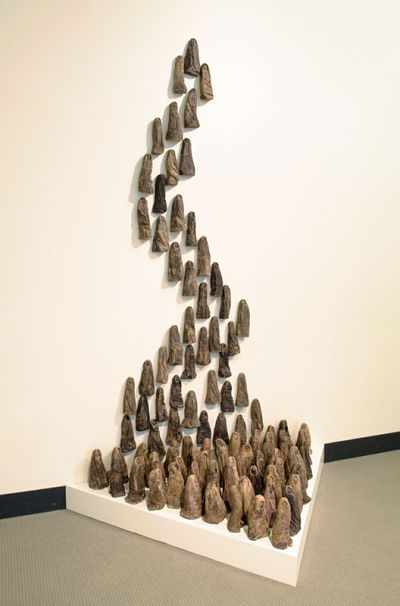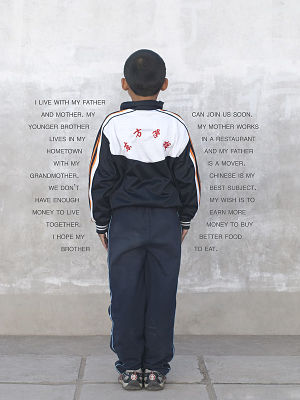I struggled to find a topic to write about, seeing as I have no personal experience with immigration. I thought about my grandmother and her family who came here from Zacatecas after my great grandfather came here to build railroads in order to be granted citizenship. I thought about my daughters father who I am separated from, who is Latino and has family that has dealt with immigation and deportation. These are all valid second hand experiences, but something did not feel right about using their stories. I remember talking with my mentor who I respect and hold in a very high regard. It was the middle of 2020, in the midst of the riots and protests regarding racial injustice. I was having a hard time finding my stance and my opinion on the subject. I disagreed with the riots and the looting, but I wanted to understand the reason for them. I always assume there is a good reason for things that a shift in perspective can shed light on. This mentor of mine has also dedicated her life to studying psychology and helping people heal after trauma. I value what she says deeply. She asked me if I knew what group of people is most similar to those who have been oppressed and discriminated against. I had no idea. She told me that domestic abuse survivors have the most in common with people who have been oppressed and discriminated against. Now, this is in no way to say that those two groups are the same. Her point was the actual brain chemistry and neuro pathways are almost exactly the same after those kinds of trauma. Meaning that a lot of the same actions and reactions occur and a lot of the same mental patterns occur. This was significant to me because I was in two severely abusive relationships, one for 6 years and one for 2 years. The abuse was mental, emotional and physical. This is important because in order to find understanding in something you can’t seem to wrap your head around, it is a good idea to find common ground, or similarities, or in this case, something that could have created similar thoughts and actions as the person or group you are trying to understand. The emotional environment created by both being oppressed/discriminated against and by being abused/oppressed by your partner are similar. I had to find a way to relate in order to understand and continue my journey of learning and growing.
Living with my abuser for 6 years was interesting. It did not start off abusive. It was gradual and the rules started off slow and seemed like no big deal. The red flags were more like light pink and I liked that color anyways. I wanted love and a family. We had a daughter and so I had both of those things, but the more time went by, the more was added to the equation. Things like name calling, cultivation of low self esteem, tense and aggressive movements and words, rules on top of rules, and eventually pushing, throwing, choking and hitting. Any person in their right mind would say “why did you let him do that to you?” and I spent years questioning this myself. But the answer is everything crept up on me, I didn’t know it was going to get so bad, and once it got bad, I kept thinking about wanting love and wanting a family, I did not want to give up on my dream and goal yet. Then once I realized that I needed to get out, I was under his thumb. At that point, which was at about year 4.5, he had full control. Or at least I believed he did. I had begun to believe that this is just how life is, I need to follow these rules or else I get hurt, either
emotionally or physically. I tried many times to get out and somehow always ended up back in the manipulative house we lived in. I now believed it was where I belonged. It took things getting worse and worse and more damage being done to myself and my daughter for me to snap back to reality and stand up for myself and my daughter. I was metaphorically pushed against a wall, and once I realized that I could get off that wall, I sprinted to the other side, missing the middle ground, making sure, by any means necessary, that my abuser/oppressor knew I was done following rules, I was done not defending myself. There was no middle ground to me, there was only being abused or fighting back intensely. In fact, the next time he put his hands on me out of aggression, I hit him in the face and left a mark, therefore when he called the cops on me, even after explaining myself to the officer, I was arrested for assault. I was later let go with no charges because the officers believed me. But my point is that sometimes when youve been held down so long, and you start to find your strength and your God given right to live freely, you upset the system a bit, you get a little loud, a little aggressive and maybe break some rules because the rules you have been living by are unjust and now you see it. This is similar to someone that has dealt with oppression and discrimination. In regard to following rules you don’t like or agree with in order to not get hurt, or starting to believe this is just how life is, this is what you deserve, or finally saying no more, I will fight back with all my strength, and cause a scene because I am done being silent.
This gave me a way to relate to another person or group of people, and for that I am grateful. The situations I am comparing are vastly different, but the mental environment is so similar. The riots and the violence that resulted as a response to racial injustice only made sense to me when I took into account the nature of human beings and the way our brains work and what oppression does to us.




 RSS Feed
RSS Feed